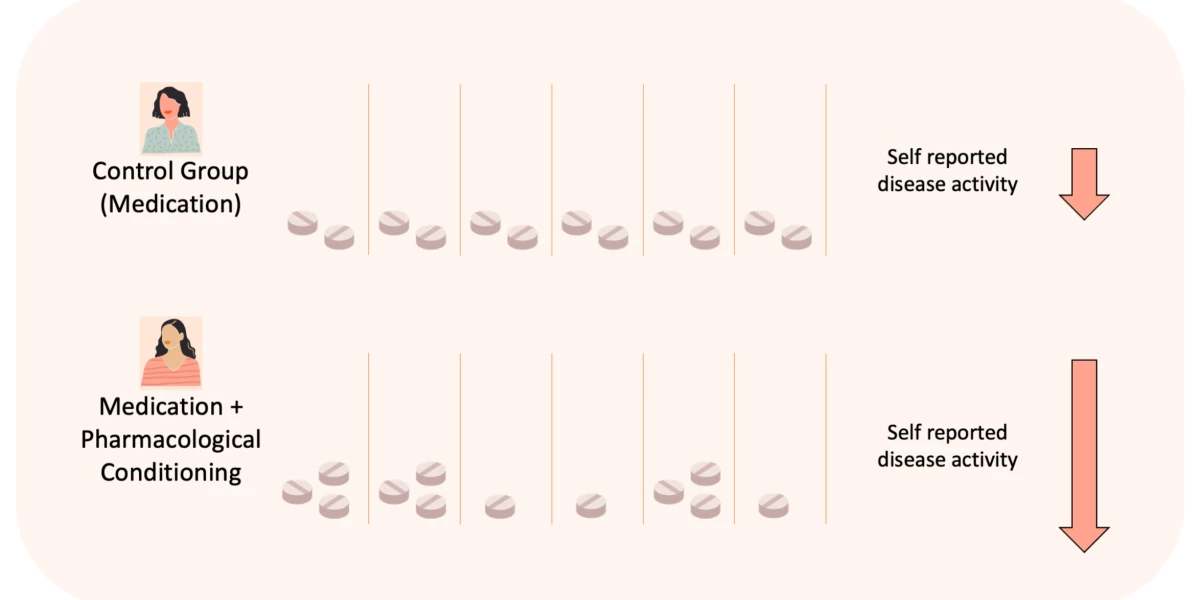New publication on pharmacological conditioning in rheumatoid arthritis (RA)
Medication regimens employing variable reinforcement conditioning have demonstrated comparable or enhanced therapeutic effects compared to full pharmacological treatment. However, there is limited evidence in patient populations. A double-blind randomized clinical trial, serving as a proof-of-principle, investigated the potential optimization of treatment effects in recent-onset rheumatoid arthritis (RA) through pharmacological conditioning.
Following four months of standardized treatment, patients in clinical remission were randomly assigned to either the Control group (C), continuing standardized treatment, or the Pharmacological Conditioning (PC) group, receiving variable treatment based on conditioning principles. After eight months, treatment was gradually tapered and discontinued linearly (C) or variably (PC). Standard treatment resulted in significant improvements in disease activity and Health-Related Quality of Life (HRQoL) in both groups. There was no significant difference in the percentage of drug-free clinical remission achieved after conditioning or continued standard treatment.
However, the PC group exhibited a more substantial decrease in self-reported disease activity and a smaller increase in TNF-α levels compared to the C group. Throughout all phases, more distinctions between groups were observed for patients adhering to the protocol than for the intention-to-treat sample. While the findings are not definitive, pharmacological conditioning may offer certain advantages in terms of disease progression and stability, particularly during the conditioning phase, when compared to standard clinical treatment. These effects may be particularly beneficial for patients displaying a favorable initial response to increased medication dosages.

Amongst others based on these promising findings, researchers from the IPS team will in a new, five-year programme examine whether it is possible to reduce the use of particular medicines (TNF inhibitors) in patients with rheumatoid arthritis by applying advanced placebo-based techniques. Healthcare providers will be given a communication training about reducing medicines. Patients will receive an expectation training where they will learn how to handle their concerns about their condition and a pharmacological conditioning schedule to support the medicine reduction. This programme offers new training and treatment options complementary to regular care, and will provide insights into for whomthese training and treatment strategies work best.
More information on this programme

